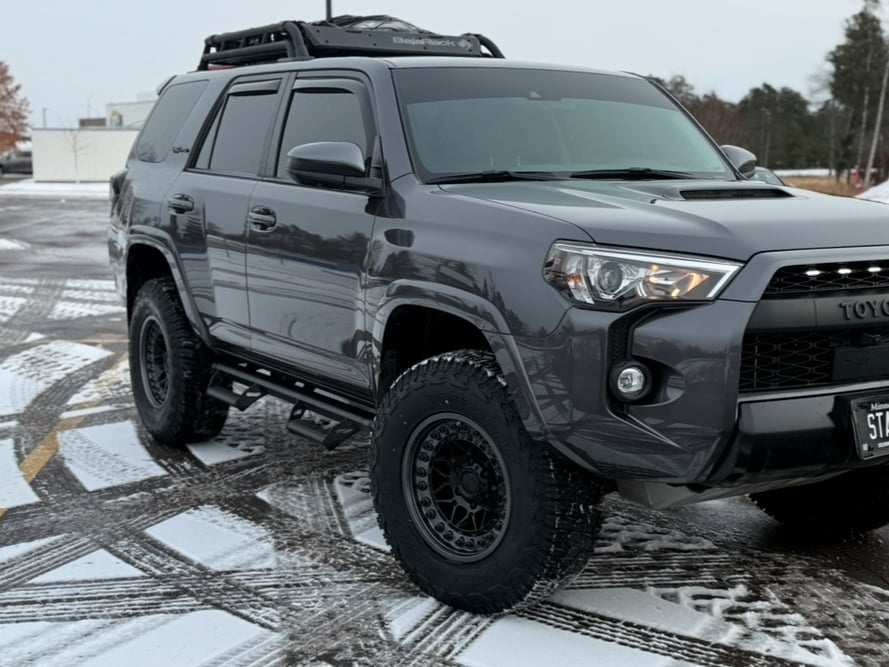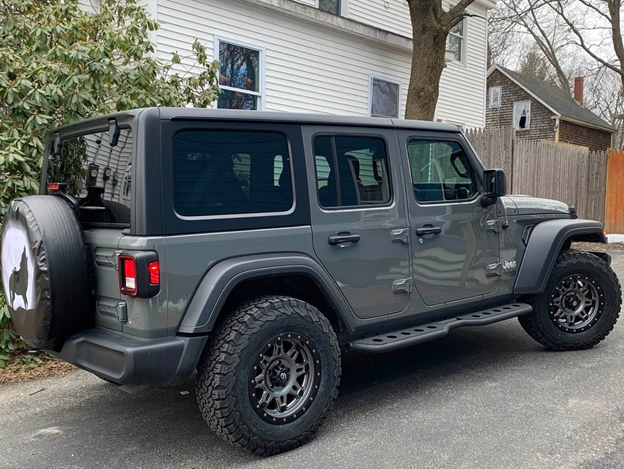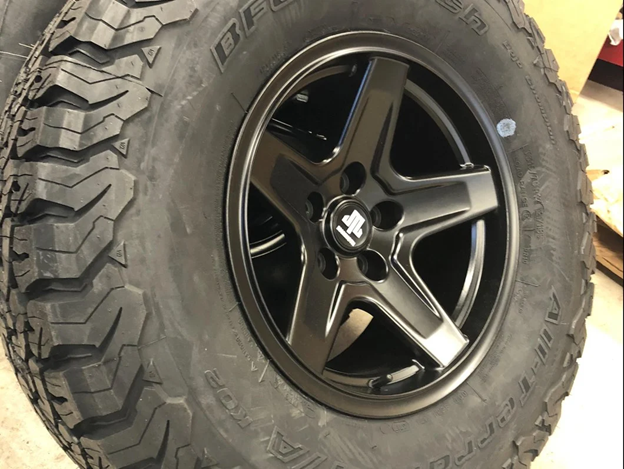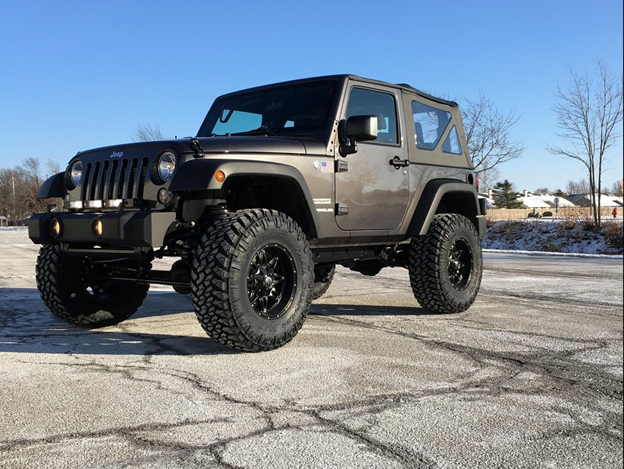

Are All-Terrain Tires Good in Snow?

High-quality tires with good traction become ever more important during the cold winter months. Winter tires have specific treading and use different compounds from summer tires, which makes them far more suitable for these demanding conditions. But how do all-terrain tires compare? Thanks to their deep treading, they might seem like an even better option for snow driving. The answer to this question depends on the specific conditions, so let’s discuss it in more detail.
Can All-Terrain Tires Be Used in Snow?
Yes, you can use all-terrain (A/T) tires in snow, as they have deeper treading, which is crucial to have when you encounter snowy conditions. However, they will only perform well in light snow. While the treading is deep, its shape is not ideal, and especially the rubber compound leaves much to be desired. A/T tires can help you in moderate winter conditions but when you expect more snow or icy roads, it’s necessary to have dedicated winter tires. They simply behave better, as they are specifically intended for such conditions.
What’s the Difference Between Snow and All-Terrain Tires?

Even though all tires may seem similar to you, there are huge differences between the manufacturers and their specific models. If you ever get the chance to compare two different tire models back-to-back, you’ll quickly find that each performs better in its own categories. When it comes to comparing different types of tires altogether, such as all-terrain v. snow tires, the differences become even larger.
All-Terrain Tires
An all-terrain tire is positioned between mud-terrain tires (M/T) and highway tires (H/T). What this means is that they’re perfectly usable for daily driving but also the occasional off-the-road trip. Whether you go hiking, camping or just need to get through a muddy road with your work truck - all this can be achieved with all-terrain tires and without much stress. When it comes to the actual construction, it has deep treading which uses an open shoulder design, which is especially useful offroad.
Winter Tires
A snow tire will not give you so many benefits when off-roading but will handle much better on your daily commutes and give you a huge boost in terms of traction and controllability on ice and snow. Even if you have traction control, and modern all-wheel-drive systems, you risk getting stuck on an icy slope, or worse, not being able to brake in time - winter tires are an often overlooked but crucial component of safety.

The compound used for winter tires is different and uses specialized rubber. It is made so that it remains soft even at cold temperatures below 40º F, which ensures good cornering abilities during winter. If you look closely, you’ll also notice that the tread pattern is different. Winter tires use wider and thicker sipes to move away snow and water at higher speeds more effectively, and to provide an extra bite when braking.
How Tire Size Affects Snow Performance
If you’re planning to buy winter tires and an extra set of rims for them, you should also know that tire size plays an important role in how a vehicle handles snow. Narrower tires are generally better suited for winter driving because using them allows the vehicle's weight to be concentrated into a smaller surface area, which improves traction. This is especially useful in deep snow, as narrower tires can cut through the snow to reach the solid surface beneath.
Wider tires may offer greater directional stability at high speeds but struggle when having to deal with deep snow, as they tend to "float" on the snow, rather than cutting through it. Knowing this, it might be better to get smaller rims than those you use for summer driving so that you can fit narrower tires.
How Do I Recognize Winter Tires?
All tires that are approved for use in winter conditions have a special marking on the sidewall. Look for a three-peak mountain snowflake (3PMSF) symbol. This symbol means that the tires meet the safety and performance requirements for use in winter conditions.

Get a Set of Winter Tires for Your Truck
Dedicated winter tires are the safer and more reliable choice for driving in cold, snowy, or icy conditions, offering superior traction, handling, and braking performance compared to all-terrain tires or any other type of tire for that matter. We can offer you a wide range of winter tires from renowned brands such as Yokohama and Toyo, at favorable prices. If you have any questions, our dedicated sales tech team would be happy to help you choose the right tire for your truck and assist you in the process of getting fresh rubber for your truck.